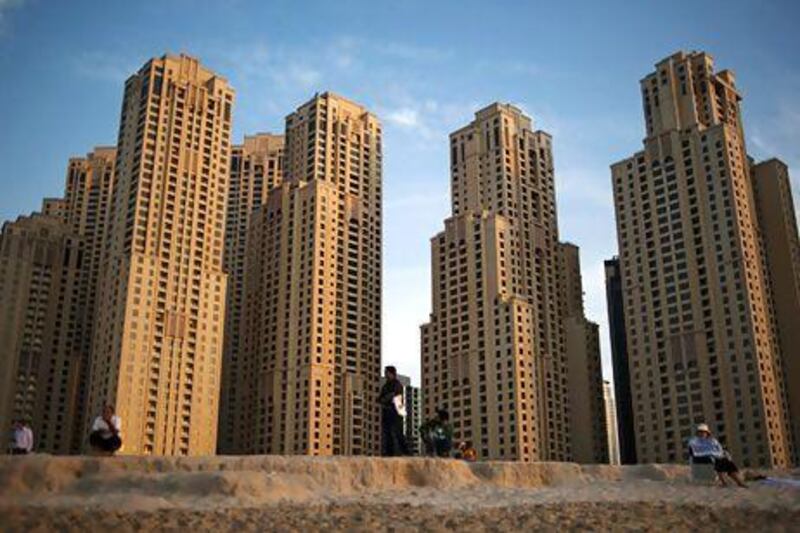When Dubai plunged into recession in 2008, the subsequent crash of the housing market affected more than just developers and property buyers.
District cooling companies, which provide chilled water to developments in bulk, also suffered as they struggled to recoup their big upfront costs in the face of construction delays and low occupancy rates.
District cooling requires a plant that cools water, which is then channelled to villa complexes or high rises, replacing individual air conditioning units with blanket coverage.
After some time in the doldrums, Dubai rebounded. As the economy recovered, the city started drawing in people again, and its population grew by 5 per cent to 2.1 million inhabitants last year.
At the same time, the construction of new properties has picked up, with 3,400 units boosting supply in the second quarter to 360,000 residential units in areas monitored by the property company Jones Lang LaSalle in Dubai. A rise in rental prices indicates that occupancy rates are increasing.
This is good news for district cooling companies, whose performances are mirroring the upturn.
Empower, a district cooler with a focus on Dubai, recorded a 5.2 per cent increase in peak consumption during July, as customers using up more than 83 million refrigeration tonnes per hour during the hottest periods of the day.
According to Ahmad bin Shafar, the chief executive of Empower, the rise was because of increased occupancy in residential areas such as Jumeirah Beach Residence, as well as additional buildings in the Business Bay area coming into service. Better occupancy rates in commercial properties also helped, he added.
To capitalise on the popularity of Business Bay, the company is completing a second cooling plant in the area, which will add 45,000 refrigeration tonnes of capacity and is scheduled to be completed by the middle of next year.
The financial results of district cooling companies reflect the revival of Dubai's property sector.
Last year, Empower increased its profits by 17 per cent to US$51.7m. Palm Utilities, another Dubai district cooling company, increased profits last year by 32 per cent to Dh164m.
"Clearly the market in Dubai is picking up and that is increasing occupancy levels, particularly in residential," said Craig Plumb, the head of research at Jones Lang LaSalle. "It's good for the district cooling companies. It makes it easier to recoup the capital costs and it increases the power the building uses."
It is also good for residents. As developers struggled to fill their properties, complaints mounted over increasing cooling fees, which analysts blamed on district cooling companies trying to pass on the capital costs for their plants, as well as higher costs for power and water.
With a better utilisation of assets, the construction and maintenance costs will at least be spread more widely.
Experts believe that the office sector will prove less lucrative than the residential properties, as occupancy in the former is still lagging behind.
"Occupancy in the office market is still quite low, and there's increasing competition, which could keep costs under control. Office tenants are also becoming more aware about service charges," said Mr Plumb.





